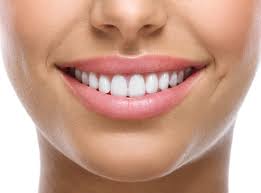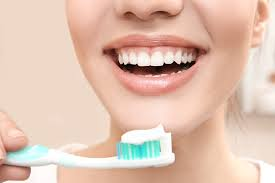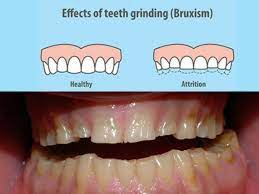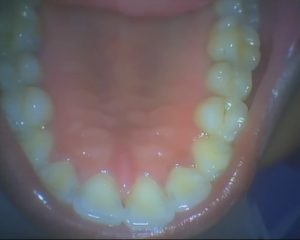
When you think of the phrase “for life,” what comes to mind? Sure, there’s marriage and children, but we’re talking something a bit more mundane: your teeth. Holding onto a full set of pearly whites for an entire lifetime can seem like an impossible task nowadays, but it doesn’t have to be!
If you’re looking to maintain a healthy, happy smile for many years to come, then you need to brush up on the proper dental hygiene practices. To make things easy, we’ve outlined 10 essential tips that will help you keep your teeth strong and healthy…for life.
Let’s review how to properly brush and floss your teeth (yes, even kids should floss!), how often you should visit the dentist, which mouthwashes are best for optimal oral health…and more. Now is the time to make sure you stay ahead of tooth decay—because nobody wants cavities or root canals.
Understanding the Basics of Oral Health
We all want to keep our teeth for a lifetime, but understanding how to do that can be tricky. Luckily, having a good oral health routine isn’t as daunting as it may seem if you just remember the basics!
At the top of the list is Brushing – and when it comes to brushing your teeth, don’t skimp! You should aim to brush your teeth at least twice a day, using a toothbrush with soft bristles and fluoride-containing toothpaste. Spend at least two minutes brushing each time and make sure you reach every surface – front, back, top and bottom. Doing this will help get rid of plaque, which can cause cavities and lead to gum disease if left unchecked.
It’s also important to floss every day. This helps remove food particles stuck between the teeth that brushing alone won’t reach. Don’t forget to use mouthwash too; it helps reduce plaque buildup and freshen your breath!
By consistently following these basic steps in your daily routine you’ll be well on your way toward having healthy teeth for life!
Adopting Good Oral Hygiene Habits

If you want to keep your teeth for life, it’s important to have and maintain good oral hygiene habits. This means more than just brushing twice a day; it encompasses all the steps you can take to keep your mouth clean and healthy. Here are some tips:
- Brush at least twice a day with a fluoride toothpaste, paying special attention to the areas where your teeth and gums meet.
- Floss between your teeth at least once daily
- Replace your toothbrush or toothbrush head every three months
- Schedule regular cleanings and checkups with your dentist
- Keep up with your dental treatments, such as sealants, fluoride applications, and other preventive treatments
- Snack smart. Choose nutritious foods that promote healthy gums, such as fruits, vegetables, lowfat dairy products, lean proteins and whole grains.
- Avoid sugary snacks and drinks that can fuel bacteria growth in your mouth
- Monitor any unusual symptoms in your mouth – bleeding or sore gums or sensitivity in any of the teeth – and contact your dentist immediately
- If you use tobacco or smokeless tobacco products, quit now
- Wear a protective mouth guard when playing sports for added safety
Making these practices part of a regular routine will go a long way in helping you maintain healthy teeth for life.
Getting Regular Dental Checkups
A critical tip for keeping your teeth for life is to get regular dental checkups. It’s recommended that adults visit the dentist at least twice a year, and maybe more if you’re prone to cavities or gum disease. Your dentist will not only check on your teeth, but also look for signs of oral cancer or other issues that can be addressed early.
What happens during a dental checkup?
At your dental checkup, your dentist will likely do the following:
- Thoroughly clean and examine every tooth and note any issues
- Check your gums and note any signs of inflammation or recession
- Examine the soft tissues of your mouth for any abnormalities
- Take x-rays to investigate any underlying problems beneath the surface
- Perform a professional teeth cleaning with an ultrasonic cleaner and polished with a gritty paste
- Talk to you about brushing and flossing techniques, overall oral health, diet, lifestyle or any treatments that may be needed.
An ounce of prevention is worth a pound of cure—so make sure you schedule regular appointments with your dentist. Doing so will help ensure that you keep your teeth—and keep them healthy—for life!
Eating a Balanced Diet for Healthy Teeth
It’s no secret that what you eat can affect your teeth, but it’s important to eat the right things in order to keep them healthy and strong for life. Eating a well-balanced diet that includes fresh fruits and vegetables, whole grains, lean proteins, low-fat dairy products and healthy fats helps protect your teeth against decay. Additionally, limiting foods and drinks high in sugar and acid can help reduce your risk of tooth decay.
Here are a few other tips for eating right for healthy teeth:
- Avoid snacking throughout the day – this helps reduce bacteria-causing acids in the mouth that can damage enamel.
- Drink more water – it not only helps you stay hydrated, but also keeps your mouth clean by flushing away food particles.
- Eat crunchy fruits and vegetables – they act like a natural toothbrush to help scrub away plaque and bacteria.
- Limit sugary drinks – even though these provide instant energy, they also contain lots of sugar which can lead to tooth decay.
- Chew sugarless gum – this helps stimulate saliva production which cleanses the mouth of food particles, acids and bacteria.
By eating a balanced diet, limiting sugary snacks and drinks, drinking plenty of water and chewing sugarless gum—all of these things together—will help keep your teeth healthy for life!
Reducing Sugar and Acidic Foods in Your Diet
Sure, you already know not to overindulge in sugary treats, but what you might not know is that acidic foods also wreak havoc on your teeth. Foods with high acidity levels like oranges, lemons, tomatoes and vinegar can wear away at enamel which then exposes the more sensitive layer underneath. COVID-19 has also taught us that lemon in fluids can destroy your teeth.
So what can you do? Cut down on acidic foods and drinks, and if you must have them, balance out their harmful effects by drinking water or consuming dairy products afterwards. Also keep in mind that brushing immediately after eating acid or sugary foods does more harm than good – wait at least an hour before brushing so the enamel isn’t worn away in the process.
Avoiding Tooth Damage From Grinding and
Your Teeth

One important tip to help you keep your teeth for life is to avoid grinding and clenching your teeth, especially in your sleep. This is a common cause for TMJ (temporomandibular joint) pain, and it weakens the enamel on your teeth over time.
You can take steps to protect your teeth from unnecessary damage caused by grinding:
- Ask your dentist if you’re an excessive grinder or if you have TMJD symptoms. If so, you might need to get a protective nighttime mouthguard fitted.
- Evaluate whether lifestyle changes or stress reduction techniques could help you reduce the frequency of grinding or clenching while sleeping.
- Relaxing activities like meditation, yoga, and stretching can help reduce muscle tension in the jaw area.
- Massaging the jaw muscles before bed can also help decrease anxiety and induce relaxation before sleep.
If left unchecked, this kind of tooth damage caused by grinding can result in weakening of enamel, as well as chipping or cracking of teeth — so it’s important to take measures to prevent this kind of damage from happening!
Utilizing Sealants to Protect Against Cavities
Sealants might not be on the top of your list when it comes to taking care of your teeth, but they can be extremely helpful in preventing cavities. Sealants are thin plastic coatings and are typically brushed onto the back molars and premolars, which is where most cavities tend to occur.
By using sealants, you can:
- Reduce decay in the biting surfaces of back teeth by as much as 80%.
- Make cleaning easier by creating a smooth surface that can’t trap food particles and plaque.
- Protect against the acid that’s produced when plaque forms on your teeth.
Sealants are made of BPA-free materials and generally last around five years before they need to be reapplied. The application process is simple, painless, and requires no drilling or removal of tooth structure – making them an excellent way to help you keep your natural teeth for life!
Quitting Smoking for a Healthier Mouth
Smoking is a habit that many of us struggle to break, but if you’re serious about keeping your teeth for life, quitting should be at the top of your list. Smoking is proven to increase the risk of oral cancer, gum disease and tooth decay.
Effects on oral health
Tobacco use can lead to build-up of plaque, yellowing and discoloration of teeth and bad breath; it’s also been found to reduce oxygen in the bloodstream which can lead to slower healing after dental surgery. Smoking also lowers your body’s resistance to infection, making it more difficult to fight against bacteria that cause gum disease.
Advantages of Quitting
In addition to preserving oral health, there are numerous other advantages to quitting smoking like enhanced cardiovascular health and improved smell and taste senses. Quitting can also help you reduce costs associated with smoking like higher premiums for health insurance.
So if you want to keep your teeth for life, make sure that kicking the habit is on your list of priorities. From seeking out hypnotism or nicotine replacement therapy programs, consulting with a doctor or online support groups—there are multiple ways you can quit smoking successfully these days; you just have to be committed and have the right attitude. Take charge today!
Practicing Safe Methods of Teeth Whitening
Nobody likes having yellowing teeth, but it’s important to practice safe methods of whitening them. There are some over-the-counter whitening products you can use, though many dentists recommend that you get your whitening done by a professional in order to make sure it’s done safely and effectively. Some methods even take place directly in the dentist’s office!
You also have to be careful about how often you whiten your teeth. Too much whitening can actually damage the enamel on your teeth, making them weaker and more prone to decay. Because of this, it’s always best to talk to your dentist before starting a whitening regimen — they’ll be able to give you specific advice about which methods are safest for your teeth and schedule.
Keep an Eye Out for Teeth Stains
Regularly check for new stains on the surface of your teeth — this could be a sign that you’re drinking too much coffee or tea (or even red wine!). If the surface of your tooth is stained or discolored, switching up drinks should make a difference. Otherwise, it may be time to go back to the dentist for a professional cleaning!
Understanding the Importance of Dental Insurance
When it comes to keeping your teeth for life, understanding the importance of dental insurance is key. Sure, you might be fortunate enough to have a top-notch health insurance plan that includes dental coverage, but not all plans do, and even if they do, the coverage may not be comprehensive. Taking out a standalone dental insurance policy can help you ensure that you’re getting the most comprehensive coverage possible for your teeth and gums.
Inclusions
When researching different dental insurance policies, pay attention to what’s included in the plan. Different plans cover different types of services and procedures, such as cleanings and check-ups or X-rays or other more advanced treatments like crowns or root canals. Knowing what’s included in a specific plan can help you determine if it’s really worth it or not.
Pricing
Pricing for dental insurance varies widely across different policies, so make sure to compare prices before making a final decision. Generally speaking, policies that offer more coverage tend to be more expensive than those with fewer bells and whistles.
Savings
Dental insurance can often come with reimbursement benefits which allow policy holders to save money when they use the services of certain dentists who are part of their plan’s network. Additionally, some plans also include discounts on preventative care such as cleanings or fluoride treatments that can help keep your teeth healthy over the long term.
Overall, understanding the importance of dental insurance is key when it comes to keeping your teeth for life—without protection from a policy that meets your budget and needs, you may find yourself paying out of pocket for costly treatments down the line if something goes wrong with
Have your teeth checked and cleaned twice a year
Making sure that you get your teeth checked and cleaned twice a year is essential for keeping them healthy and strong for life.
Getting regular check-ups helps to spot any developing problems or signs of wear or decay early on, so that they can be treated quickly and without extensive work. Even if you think your teeth are clean, plaque can easily hide out of sight and build up over time—especially in those hard-to-reach places.
A professional cleaning should include:
- An examination of your mouth and teeth, checking for any signs of cavities, oral cancer, gum issues or other damage
- A description of the findings and treatment options
- X-rays to look further into issues like tooth decay
- Cleaning of the surface of the teeth to remove plaque build up
- Polishing the teeth with a special paste to remove surface staining
- Flossing between the teeth to help remove trapped food particles
- Applying a fluoride treatment to protect against cavities
By having your teeth checked and cleaned twice a year, you can rest assured that any potential dental issues will be detected quickly and can be treated before they become serious—helping you keep your smile for life!
Conclusion
Keeping your teeth for life doesn’t have to be a daunting task. In fact, it’s not all that complex when you break it down. Just by following these 10 tips, you’ll be well on your way to maintaining a healthy mouth and keeping your smile intact. Remember, regular visits to the dentist are still essential, even if you’re taking all the right steps at home to look after your teeth.
So, take a few minutes each day to brush, floss, and maintain a healthy diet and lifestyle, and you’ll be rewarded with strong and healthy teeth that you can proudly show off.


